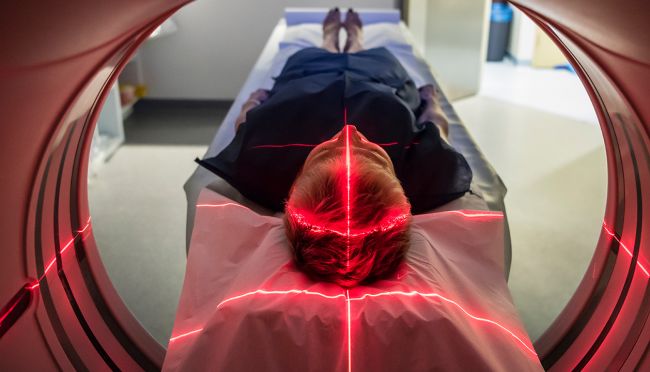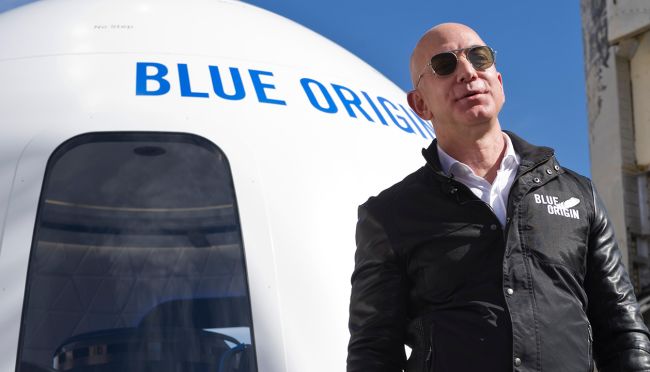Innovation Strategy →
→

- 01 Nov 2022
- Research & Ideas
A Penny for Your Thoughts? For Big-Picture Ideas, the Right Pay Structure Matters
Employment contracts that try to squeeze more productivity out of workers can thwart innovative thinking, says research from Susanna Gallani. She offers advice to help companies align incentives with expectations.

- 23 Sep 2022
- Research & Ideas
8 Strategies to Sustain Business Innovation
It's a harsh reality: The majority of new business ventures fail. In the book Productive Tensions, Rory McDonald and his coauthor say the key to survival is figuring out how to pivot during the innovation process.

- 12 Sep 2022
- Research & Ideas
When Experts Play It Too Safe: Innovation Lessons from a NASA Experiment
A study of an international robotics competition reveals how experts prioritize easy-to-execute inventions over moonshot ideas. Are companies missing out on potential breakthroughs? Research by Jacqueline Lane and Karim Lakhani.

- 29 Sep 2020
- Working Paper Summaries
Centrino and the Restructuring of Wi-Fi Supply
This study examines Intel’s launch of Centrino and interprets it as a platform leader’s attempt to restructure a supply chain.

- 22 Sep 2020
- Research & Ideas
Recessions Push Some Entrepreneurs to Launch Too Soon
Research by Maria Roche looks at how past economic downturns forced job-insecure, high-tech entrepreneurs to rush their ventures to market. Will COVID-19 do the same? Open for comment; 0 Comments.

- 02 Jun 2020
- Research & Ideas
Coronavirus Careers: Cloud Kitchens Are Now Serving
Cloud kitchens are restaurants built around food delivery rather than sit-down service, and they are increasing in popularity as COVID-19 disrupts the industry, write Lena Ye and Geoffrey Jones. Open for comment; 0 Comments.

- 23 Mar 2020
- Research & Ideas
Product Disasters Can Be Fertile Ground for Innovation
Rather than chilling innovation, product accidents may provide companies an unexpected opportunity to develop new technologies desired by consumers, according to Hong Luo and Alberto Galasso. Open for comment; 0 Comments.

- 06 Feb 2020
- Research & Ideas
What We Learned from Reading Jeff Bezos’ Patents
By studying Jeff Bezos' personal patent records, Tricia Gregg and Boris Groysberg offer a unique glimpse into Amazon's strategy. Open for comment; 0 Comments.

- 18 Dec 2019
- Book
6 Skills That Wise Companies Harness for World-Changing Innovation
What does it take to truly change the world? In The Wise Company, Hirotaka Takeuchi shares the practices that help leading companies turn knowledge into lasting breakthroughs. Open for comment; 0 Comments.

- 12 Nov 2019
- Research & Ideas
Corporate Innovation Increasingly Benefits from Government Research
Nearly a third of US patents rely directly on government-funded research, says Dennis Yao. Is government too involved in supporting private sector innovation—or not enough? Open for comment; 0 Comments.

- 28 Oct 2019
- Research & Ideas
Brick-and-Mortar Stores Are Making a Comeback
Left for dead alongside the retail highway, physical stores are suddenly finding new ways to compete, say Jill Avery and Antonio Moreno. Open for comment; 0 Comments.

- 24 Sep 2019
- Research & Ideas
Do National Security Secrets Hold Back National Innovation?
It's a paradox about innovation. Inventors want to keep secret the inner workings of their most commercial technologies, while technological progress relies on transparency. Daniel Gross looks to the secrets of WW II for insights. Open for comment; 0 Comments.

- 06 Sep 2019
- Working Paper Summaries
Experimentation and Startup Performance: Evidence from A/B Testing
Is experimentation the right strategy for startups? This analysis of the adoption of A/B testing technology by 35,000 global startups provides evidence that a strategy based on repeated experimentation will improve performance over time. However, the benefits of experimentation vary. Experimentation helps younger startups “fail faster,” while older firms may discover new, high-growth products.

- 06 Aug 2019
- Working Paper Summaries
Field-Level Paradox and the Co-Evolution of an Entrepreneurial Vision
Swiss watchmaking embodies the classic strategic paradox created by the introduction of new technology: the choice between resisting and defending, or embracing and prospecting. This paper offers a model for how fields and organizational leaders experiencing similar paradoxes can adapt to environmental change while still preserving valuable aspects of their past success.

- 18 Jul 2019
- Lessons from the Classroom
The Internet of Things Needs a Business Model. Here It Is
Companies have struggled to find the right opportunities for selling the Internet of Things. Rajiv Lal says that’s all about to change. Open for comment; 0 Comments.

- 19 Jun 2019
- Working Paper Summaries
Migrant Inventors and the Technological Advantage of Nations
This study provides robust econometric evidence for how immigrant inventors shape the innovation dynamics of their receiving countries. Countries receiving inventors from other nations that specialize in patenting particular technologies are more likely to have a significant increase in patent applications of the same technology.

- 25 Apr 2019
- Research & Ideas
Incubators Take Notice: Your Entrepreneurs Are Networking with the Wrong People
Startup incubators used by cities and companies to jump-start innovation have a problem to overcome. Attendees tend to network with people they already know, says research by Rembrand M. Koning. Open for comment; 0 Comments.

- 26 Mar 2019
- Working Paper Summaries
Mitigating the Negative Effects of Customer Anxiety Through Access to Human Contact
Firms increasingly deploy self-service technologies (SSTs) to manage customer interfaces that are inherently stressful. For example, patients may be asked to use kiosks to check themselves into hospitals. This study finds that customer anxiety during SST transactions can reduce customers’ trust in the service provider. Operational design choices may help.

- 25 Mar 2019
- Research & Ideas
The Secret Life of Supply Chains
While US policymakers and politicians focus on reviving the manufacturing sector, Mercedes Delgado and Karen Mills unearth a source of better jobs hidden in plain sight. Call it the supply chain economy. Open for comment; 0 Comments.

What Chandrayaan-3 Says About India's Entrepreneurial Approach to Space
India reached an unexplored part of the moon despite its limited R&D funding compared with NASA and SpaceX. Tarun Khanna discusses the significance of the landing, and the country's advancements in data and digital technology.